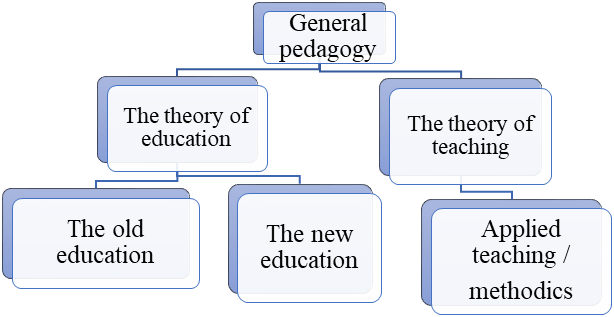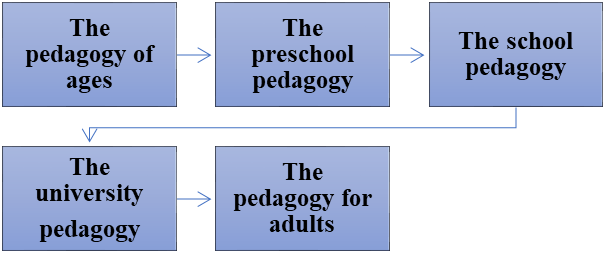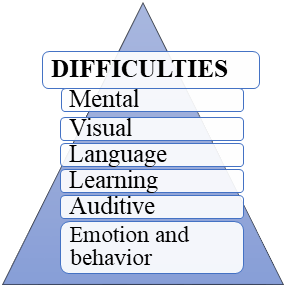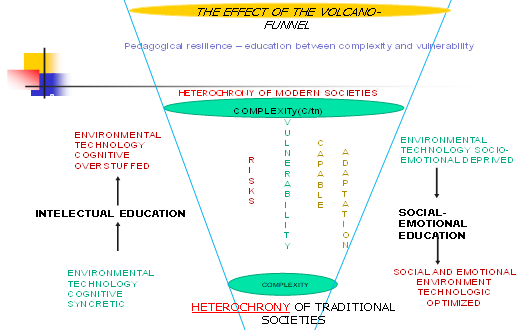Abstract
The development of the pedagogy as an educational science started with its focus on the formative process, based on education and instruction. Nowadays, this science is divided in didactics and applied theories, focusing on the teaching process. Contemporary pedagogy becomes imperatively a science of protection from risks and a science of development resilience and human resistance against everyday experiences and challenges. Contemporary pedagogy is a constantly changing and adapting, always looking to improve the quality of education and adjusting to demands of modern society. None of the less, the importance of the present contrasts between old forms of education and new forms of education is presented trying to understand that the old ones can be combined with the new one’s in a modern accent. This paper aims at showing the history of the pedagogy, how it started, the based and its branches, the way that it was developed and it’s future.
Keywords: Old/new educationcontemporary pedagogypedagogical brancheseducational sciencespedagogy of protection
Introduction
At the beginning, pedagogy has dedicated itself to the educational formative process, designed to meet the long way etymological senses such as: educo, educare, educere, then the modern sense, namely the personality development of the young child and to which we add educational influences management that became a frequent topic in contemporary debate.
It is to remember three times in clarifying the meaning of pedagogy and education, the etymological sense of growing and cultivation, the modern sense of the development of human personality and finaly the contemporary sense of management and administration of beneficial influences for the sustainable development of people and communities. Education means development, personal development, group development and community development, these are the most complex phenomena and will be more complex in the future.
Diachronic development of Pedagogy
The emergence of pedagogy at the middle of the seventeenth century was the beginning of its consecration as an educational science, as its founder, J. Amos Comenius defined it "The art of teaching them all". Pedagogy has evolved as science of education following the progress of science, multiplying its domains and filiation areas by the end of the twentieth century and it still signs in a process of reconstruction and synthesis. These contrasts developments, fragmentations, and then synthesis we represented them in condensed schemes. The focus is on graphic representations that came both on analytical developing, fragmentary pedagogy and the new synthesis in educational sciences.





Contemporary pedagogy
Currently, we believe that pedagogy assumes two complementary and unique roles that are challenging. Contemporary pedagogy cannot remain just an educational science. Contemporary pedagogy becomes imperatively a science of protection from risks and a science of development resilience and human resistance against everyday experiences and challenges.
We name in this contemporary context alternative pedagogy those actions focused on theoretical and practical formation of personality, onto the protection of persons at risk and optimizing resistance to difficult existential events.
Why do we need a pedagogy of protection?
Why do we need a pedagogy of increase resistance, a pedagogy of resilience?
The answer to the questions asked can be found in a profound analysis of the complexity of the relationship between life experiences and factors of vulnerability and risk.
In figure

It is obvious that companies have always been marked by a certain index of heterochrony the meaning given to the term of Rene Zazzo. Heterochrony reflects the gap in terms of development of personality traits in humans, or a gap in the development of the communities components, states, in its globality world.
Our analyzes leads to the conclusion that in its evolution, humanity is marked by a growing gap between cognitive and socio-emotional development. As can be seen in Fig.
Our analyzes also lead to the conclusion that at present personal and community success lies not in cognitive giftedness but in the socio-emotional balance. It is in our opinion that a new, true formula for success in contemporary life, comes under the responsibility of the protection and resilience pedagogy.
We take into consideration the example of foundation of pedagogy and hereditary and environmental theories were reconciled by the double determinations theory on factors of personality development.
We must recognize, therefore, that according to research on epigenetic changes (evidence based research), the environment has a decisive influence on personality development, in times when the person is overwhelmed by risk factors.
What are epigenetic changes?
There are non-biological determined changes and non hereditary.
There are changes that do not affect the DNA structure and the genetic code structure.
There are changes that are caused by environmental influences, in the broadest sense.
There are educational changes.
There are changes that cause the activation status - non-activation of genes
The lock of target gene causes different somatic, physiological and psychological developments (skeleton, muscles, emotions, psychological balance etc.).
Psychological trauma in early childhood can cause changes in the epi-genetic structure and functioning of the brain.
Are empirical evidence in this regard, collected in laboratory experiments.
The existence of epigenetic changes, clinical findings, show that in the absence of a pedagogy of protection and resiliency, optimum development of children at an early age, and adults in traumatic experiential situations can be locked, despite a favorable genetic substrate. Epigenetic changes acting in traumatizing situations at certain persons whose resilience is low in the absence of systematic factors of protection. These changes are transmitted from generation to generation chain from parents to descendants.
Daniel Goleman (2001), in his book called
Over time, scientists have found that the main predictor that ensures adaptation to adult life are not school marks, but children's ability to resist to challenges and to establish relationships with others. Current studies have found that social and emotional skills may influence success in life to a greater extent than intellectual skills. In other words, a high EQ can be more important for success than a high IQ, as it is measured by standardized tests of verbal and non-verbal intelligence. "Thinking is organically linked with emotion," noted Chelcea, S. (2008, p.44). While such correlations have been observed since the middle of last century by the sociologist (Theodor W. Adorno, 1903-1969), until the recent research, especially in neuroscience, highlighted the organic link between thought and emotion, and more the primordial of affection towards rationality in terms of brain function in real time. The emotional side is linked to the cognitive, and not by simply acting as a shadow force, but it has a cognitive value in itself.
Educational sciences are expected in developing new structures and new chapters taking priority, including protective pedagogy and pedagogy of resilience will certainly represent important research topics and formative intervention.
Conclusions
Nowadays all the educational sciences are expected in developing new structures and new chapters taking priority, including protective pedagogy and pedagogy of resilience. These will certainly represent important research topics and formative intervention in the future, as the system is in a continue changing.
References
- Chiș, V., (2005), Contemporary pedagogy. Pedagogy for skills, Publisher Casa Cărții de Știință, Cluj-Napoca
- Chiș, V., (2014), Foundations of Pedagogy. Thematic highlights for teachers and students, Publisher Eikon, Cluj Napoca.
- Daniel, A. Hackman, Martha J. Farah și Michael J. Meaney, (2010), Socioeconomic status and the brain: mechanistic insights from human and animal research, Nature Reviews Neuroscience, No. 11, 2010, pp 651 – 659).
- Daniel, Goleman, (2001), Emotional intelligence, Publisher, Curtea Veche
- Perron, Roger (1996), René Zazzo et l'étude des débilités mentales. In: Enfance, tome 49, n°2, Hommages à René Zazzo. pp. 182-190.
Copyright information

This work is licensed under a Creative Commons Attribution-NonCommercial-NoDerivatives 4.0 International License.
About this article
Publication Date
22 December 2016
Article Doi
eBook ISBN
978-1-80296-017-4
Publisher
Future Academy
Volume
18
Print ISBN (optional)
-
Edition Number
1st Edition
Pages
1-672
Subjects
Teacher, teacher training, teaching skills, teaching techniques, special education, children with special needs
Cite this article as:
Olga, C., Vasile, C., & Cristina, C. (2016). Contemporary Pedagogy, Alternative Options for Protection and Resilience. In V. Chis, & I. Albulescu (Eds.), Education, Reflection, Development - ERD 2016, vol 18. European Proceedings of Social and Behavioural Sciences (pp. 167-172). Future Academy. https://doi.org/10.15405/epsbs.2016.12.23

